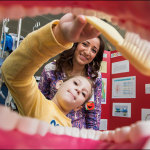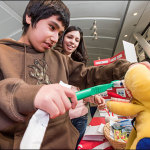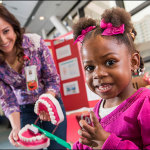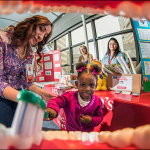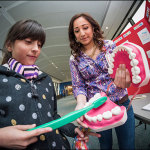January 13, 2015

Renowned tissue engineering expert and Harvard Medical School John Homans Professor of Surgery Dr. Joseph Vacanti will be the featured speaker at this year’s Denton A. Cooley Lectureship in Surgical Innovation Tuesday, February 10.
Beginning at 7:30 a.m. in the fourth-floor Conference Center at Texas Children’s Pavilion for Women, Vacanti will discuss “Tissue Engineering and The Care of Children,” a burgeoning area of research that has untapped potential for people who need new organs. His talk will be streamed on West Campus in room 150.10 as well as in the auditorium at Children’s Hospital of San Antonio. Please RSVP to Lesa Porterfiled at Ext: 6-5722 or Importer@texaschildrens.org if you plan to attend.
Vacanti’s academic surgical career has included both clinical innovation and basic research related to organ transplantation and tissue engineering, a mission that stems from his long-held interest in solving the problem of organ shortages.
While at Boston Children’s Hospital, he launched the nation’s first liver transplantation program specifically for the pediatric population and instituted New England’s first successful pediatric extracorporeal membrane osygenation, or ECMO, program.
He then began to conceptualize the design of implantable systems that would generate new tissue and replace lost function. Vacanti’s approach to developing tissue involves a scaffold made of an artificial, biodegradable polymer, seeding it with living cells, and bathing it in growth factors. The cells can come from living tissue or stem cells. The cells multiply, filling up the scaffold, and growing into a three-dimensional tissue. Once implanted in the body, the cells recreate their proper tissue functions, blood vessels grow into the new tissue, the scaffold melts away, and lab-grown tissue becomes indistinguishable from its surroundings.
Vacanti earned his Bachelor of Science, summa cum laude, from Creighton University; his medical degree, with high distinction, from University of Nebraska College of Medicine; and a Master of Science from Harvard Medical School. He trained in general surgery at the Massachusetts General Hospital, in pediatric surgery at Boston Children’s Hospital, and in transplantation at the University of Pittsburgh.
Since 1974, Vacanti has held academic appointments at Harvard Medical School. He currently holds the following positions at Massachusetts General Hospital: co-director of the Center for Regenerative Medicine, director of the Laboratory for Tissue Engineering and Organ Fabrication, and chief of Pediatric Transplantion.
In addition to being a founding co-president of the Tissue Engineering Regenerative Medicine International Society (TERMIS), which has 4,000 active members from 80 countries worldwide, Vacanti has authored more than 320 original reports, 69 book chapters, 54 reviews, and more than 473 abstracts. He also has 81 patents or patents pending in the United States, Canada, Europe, and Japan, and was elected in 2001 to the Institute of Medicine of the National Academy of Sciences.
Among others, Vacanti has received the Thomas Sheen Award presented by the New Jersey Chapter of the American College of Surgeons and the 2013 William E. Ladd Medal, the highest honor awarded by the Surgical Section of the American Academy of Pediatrics. He now will be one of several distinguished visiting professors to speak at the Denton A. Cooley Lectureship in Surgical Innovation.
Created seven years ago, the lectureship honors Dr. Denton A. Cooley, a living legend in cardiovascular and surgical innovation. Last year, Cooley was named the most innovative surgeon alive for his groundbreaking work in cardiovascular surgery. He ranked No. 1 on the list of 20 surgeons for the accolade given by Healthcare Administration Degree Programs, which is a website that provides free information for those seeking a career in the medical industry.
Cooley might be best known for performing the first successful human heart transplant in the United States in 1968 and the first human implant of a total artificial heart in the world in 1969. However, his many other contributions are even more important, including his techniques for repairing diseased heart valves and aortic and ventricular aneurysms. Cooley also promoted and popularized the use of non-blood prime for the heart-lung machine, sparing patients unnecessary exposure to blood and allowing more operations to be performed.
Before he retired from the operating room, he and his team had performed more than 100,000 open-heart operations at the Texas Heart Institute, which he founded in 1962. Cooley has authored or coauthored 13 books and more than 1,300 scientific papers. He also has won several awards, including Texas Children’s Hospital’s Distinguished Surgeon Award.
Cooley currently is chief of cardiovascular surgery at St. Luke’s Episcopal Hospital; surgeon-in-chief emeritus at the Texas Heart Institute; consultant in cardiovascular surgery at Texas Children’s Hospital; and clinical professor of surgery at The University of Texas Medical School at Houston.




